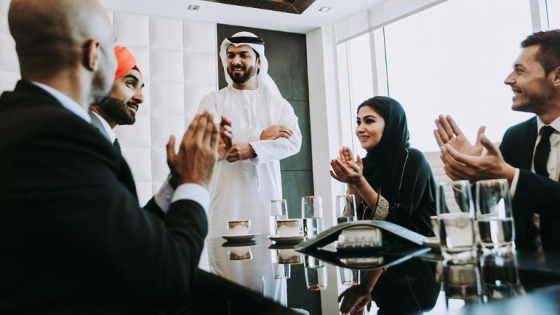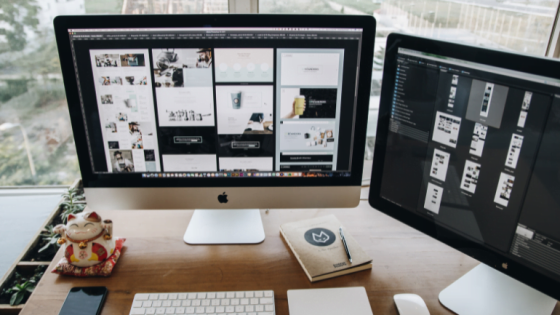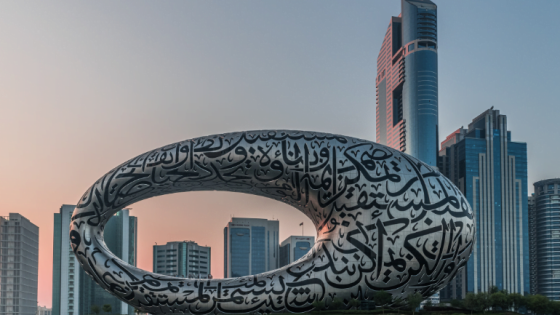Contents
- 1 Positive Work Culture in UAE
- 2 Work Environment in the UAE
- 3 Positive Organizational Culture
- 4 Eight factors of positive work culture in UAE
- 5 Establish Trust
- 6 Create The Current Culture
- 7 Determine The Ideal Workplace Culture
- 8 Set Clear Expectations & Goals
- 9 Define Goals and Give Feedback Frequently
- 10 Recognize with Reward Good Work
- 11 Development of Employees
- 12 Focus On Employees Engagement
Positive work culture in the UAE prioritizes employee well-being and has organizational policies that promote respect, equality, inclusivity, trust, empathy, belonging, and for all people in the Emirates UAE and Business culture in Dubai. Employees in organizations with positive work cultures feel treasured, valued, supported, nurtured, and helped to reach their full potential as a result.
Positive Work Culture in UAE
Years of research by renowned psychologists and organizational leaders have revealed that a positive workplace culture is one of the most important factors driving UAE business success and positive impact. Creating a positive work culture leads to increased productivity, improved employee engagement, and higher profits. As a result, it is critical to foster a culture that encourages employee development and rewards them for their efforts.
It is critical to understand that work culture is one that prioritizes more than just employee behavior and the values in which the organization believes. It is how people interact with one another and work in an organization when no one is looking.
Read more: Employment visa UAE
Work Environment in the UAE
Because only a small percentage of the workforce is local, the UAE’s work environment is classified as multicultural. Only 11.5% of the population of 9.5 million people are Emirates. The remainder are from Pakistan (12.69%), India (27.49%), and 38.55 are from 200 different nationalities. These various cultures coexist peacefully, but there is a hierarchy in which some groups regard themselves as superior to others. Cultural awareness and sensitivity are essential in all aspects of working life and the right attitude for working in the UAE, including team management and motivation, feedback structure and delivery, and dispute resolution.
Take a look at: Business visa UAE
Positive Organizational Culture

A positive organizational culture fosters employee respect by creating an environment of trust, collaboration, accountability, and accomplishment. A positive company culture empowers employees to achieve bigger and better results by assisting them in their decision-making process and their job career. Let’s look at some strategies for fostering a positive workplace culture in the country of the United Arab Emirates.
Read more: Cultural Awareness in UAE
Eight factors of positive work culture in UAE
There are 8 factors that will assist you in understanding the various components of organizational culture. You can organically create a supportive culture that drives better business outcomes by working on them.
Establish Trust
Every successful organization has a vibrant workplace culture, which is frequently led by an effective leader. As a leader, you must establish a trustworthy relationship with your employees. Employees who trust you believe in your decisions. However, building trust is not something that can be gained overnight; it must be earned over time through conscious effort.
Maintain open lines of communication with your employees and align your behavior with the values of your company. It is critical to be honest with your employees, even if the truth is not what they want to hear. As a leader, you must be prepared to communicate unpleasant facts to your employees and motivate them to correct themselves. Recognize your own mistakes.
Your employees must feel valued by their leaders, direct reports, and peers, and they must be heard, appreciated, and trusted in order to work autonomously and with a sense of belonging. This will assist you in developing an accountability culture. This contributes significantly to the development of trust.
Read more: Business Protocol in UAE
Create The Current Culture
Before you can create a positive culture, you must first identify and acknowledge the current company culture. As a business leader, your perspective on organizational culture may differ significantly from that of your employees. Conduct open discussions with employees from various departments to determine the current company culture. If you still need assistance understanding your company’s current culture, hire a consultant.
Determine The Ideal Workplace Culture

Before you shape your company’s existing culture, define the ideal qualities you want to incorporate into it. There is no one-size-fits-all culture; different businesses have different priorities. So, based on your company’s vision, define your ideal work culture. Communicate the concept of an ideal culture to your team and employees, and create appropriate policies and procedures to help you get started.
Take a look at: UAE work benefits
Set Clear Expectations & Goals
Most businesses do not clearly communicate their mission and vision to their employees. Employees should understand what is and is not important. It is your responsibility as a manager or leader to set clear goals for them and to help them understand how their personal goals can contribute to organizational success.
Make them understand how meeting these goals will improve their work experience. This fosters transparency, which in turn fosters a positive company culture.
Define Goals and Give Feedback Frequently
Following goal setting, the next step is to measure and provide feedback on a regular basis. Monitor progress if you want to achieve a goal. It is said that tracking your progress on a regular basis increases your chances of meeting your objectives.
Giving regular feedback assists your employees in aligning their performance with the organizational culture. As a result, the quality of work at your workplace improves, and your employees remain productive.
Read more: UAE Career Development Opportunities
Recognize with Reward Good Work
Workplace culture is more than just changing the behavior of your employees and workers; it is also about how you act at work. Recognize and reward excellent work. Employees have hectic schedules and a long list of tasks to complete before deadlines. So, when employees outperform their expectations, as a leader, recognize and reward them.
The first steps toward establishing a positive work culture are reward and recognition programs. This behavior encourages and motivates employees to perform better in the future.
Development of Employees
As a manager/leader, you should be able to help an employee perform better the next time you monitor their performance. Create a culture of continuous learning in your company. There are numerous Learning Management Systems available online that can assist you in developing a strong work culture.
Create a global mobility strategy that enables your employees to advance their careers globally and thrive in a new work environment. Through mobility, you demonstrate your commitment to their professional development, which aids in preparing them for greater responsibilities and future roles.
Hold one-on-one meetings with your employees and offer them suggestions on how to improve their skills and themselves. Employees who are accustomed to this culture of continuous learning are more likely to contribute to organizational success.
Take a look at: UAE Job Market Trends
Focus On Employees Engagement
Employee engagement is another critical aspect of creating a positive workplace culture. Employee disengagement is a common issue at workplaces these days, with some kind of stressful work day in and day out. You must find a way to keep your employees happy and engaged at work as a manager.
Many businesses organize various employee engagement activities in order to boost employee engagement in the workplace. The success of an engagement activity is not always determined by how much money you are willing to spend on it. All that is required for an activity to be successful is planning, flexibility, and participation.
Focusing on employee engagement helps you understand your employees and create a positive workplace culture that aligns with the employee’s individual values as well as the organizational values.
Read more: UAE cultural education
What is work culture like in UAE?
Because of its multiculturalism, traditions, and religions, the UAE has a distinct business culture and etiquette. Personal relationships are important in business in the UAE, and as such, local business culture expects you to make small talk and socialize even during work meetings.
What is the work ethic in the UAE?
Long working hours and dedication are important aspects of the Dubai work culture. Professionals in Dubai frequently demonstrate a strong work ethic, going above and beyond the standard hours to complete tasks and achieve goals.
What is the attitude toward work in UAE?
Working in the UAE necessitates extensive knowledge of both the local culture and an understanding of the region’s multicultural workforce.
What are the positives of the UAE?
The UAE has several advantages, including a high standard of living and a favorable geographical location, Stability and security, and the Banking and financial sector’s growth.
Positive work culture in UAE that promotes employee well-being, that is both physical and mental health, results in positive outcomes for both individuals and organizations. Employees with excellent job opportunities have reported positive well-being and work-life balance have positive emotional states and believe they are more engaged, productive, and prepared to face challenges.













